Ikigai: The Japanese Secret to a Long and Happy Life
£9.00£14.20 (-37%)
THE INTERNATIONAL BESTSELLER
We all have an ikigai.
It’s the Japanese word for ‘a reason to live’ or ‘a reason to jump out of bed in the morning’.
It’s the place where your needs, desires, ambitions, and satisfaction meet. A place of balance. Small wonder that finding your ikigai is closely linked to living longer.
Finding your ikigai is easier than you might think. This book will help you work out what your own ikigai really is, and equip you to change your life. You have a purpose in this world: your skills, your interests, your desires and your history have made you the perfect candidate for something. All you have to do is find it.
Do that, and you can make every single day of your life joyful and meaningful.
______________________________
‘I read it and it’s bewitched me ever since. I’m spellbound.’
Chris Evans
‘A refreshingly simple recipe for happiness.’ Stylist
‘Ikigai gently unlocks simple secrets we can all use to live long, meaningful, happy lives. Warm, patient, and kind, this book pulls you gently along your own journey rather than pushing you from behind.’ Neil Pasricha, bestselling author of The Happiness Equation
Read more
Additional information
| Publisher | Hutchinson, 1st edition (7 Sept. 2017) |
|---|---|
| Language | English |
| Hardcover | 208 pages |
| ISBN-10 | 178633089X |
| ISBN-13 | 978-1786330895 |
| Dimensions | 19.8 x 12.9 x 1.28 cm |

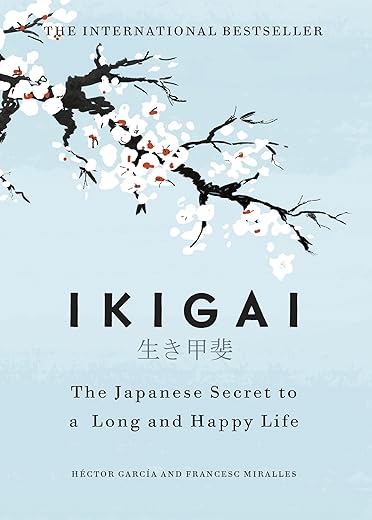
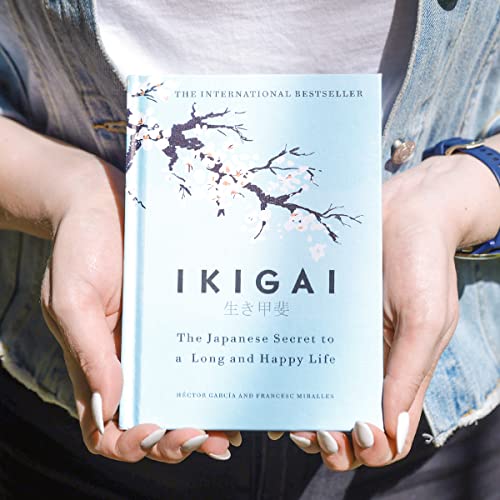
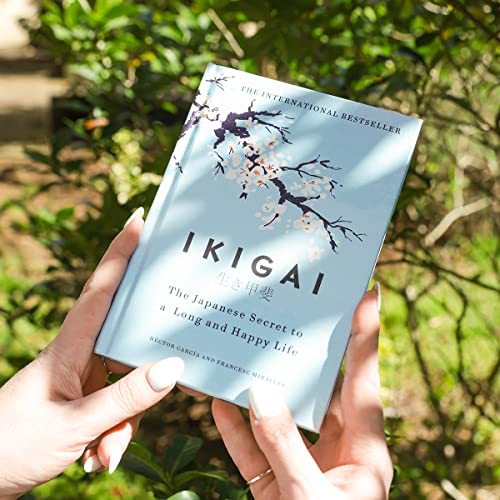
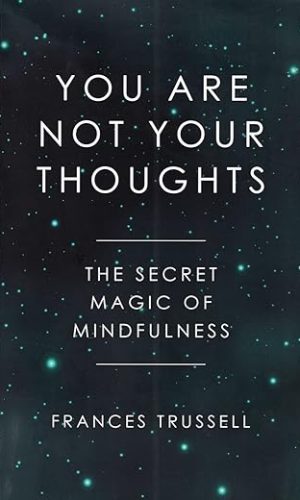
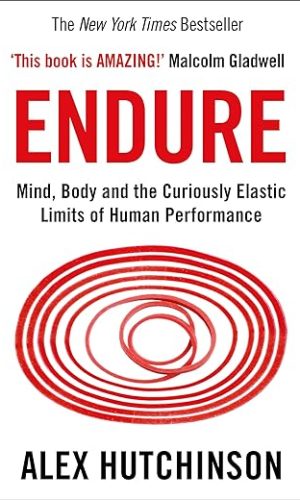

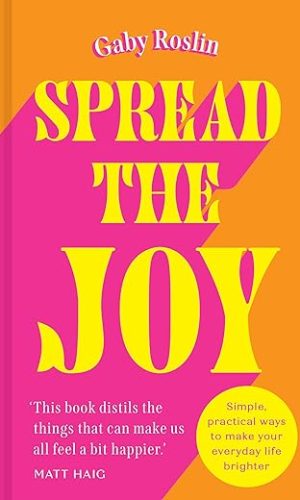
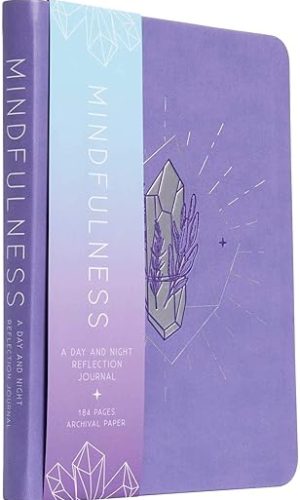


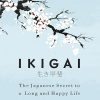
by Dwayne
Though the book was filled with insight into the effects of living an ikigai filled life, doesn’t tell you the method of finding ikigai. Just things these people do.
I guess I was looking to see and discover what my one thing is in a simplistic way. But coming to realise it’s what makes me happy and enter the flow state.
GreT book that makes me want to move to Japan.
by James Crofts
Read this whilst inter-railing across a few European cities. Right time and right place to read.
Thought provoking, engaging and gives a good overview into Japanese culture and offerings to help you find your being
by Steve Roche
The negative reviewers seem to have largely missed the point. Or to have been looking for something they will not find in a book. Yes there are chapters on diet and exercise, and the content of these is not particularly new or surprising (however irritating it may be, these things are indeed features of a healthy lifestyle).
But there is a good deal more, including the sense of purpose and meaning that is common to those who have lived to an advanced age. The way this is explored and its links to, for example, logotherapy, are helpful and illuminating. Ikigai offers a genuine recipe for living a meaningful life if you are prepared to give it some time and thought.
I strongly disagree with the reviewer who wanted it to be much longer! Most books are badly overwritten and in need of editing: the value of a book is in the quality of its content, not the number of pages it fills. This one is attractively presented, says what it needs to, then stops.
by JoJo
Enjoying this book would recommend
by Tham Chee Wah
This is a good book that, I would say, guide readers to happiness. Or more appropriately, to live happy.
There are methods, there are ways being practiced, with good empirical studies that made the suggestions to attain happiness doable. Just follow the ways, and for whatever outcome, it won’t stray from leaving a smile on your face.
That would’ve achieved the purpose – smiles!
by alherb
A nice read with some helpful advice about living better. Surprised and disappointed though to see nothing about the 4 overlapping circles which I thought were central to Ikigai. Ie. What you are good at, what you love, what the world needs and what you can be paid for.
by stevemcl10
I found the book informative on Japanese culture and how the people of Okinawa live a fruitful life…. Maybe there is a lesson for the west, but letting go would be the real hard thing for many with powerful marketing, ultra processed “food” and accumulation of “things” being thrown in our faces daily! I’ve read several texts before on implementing small improvements in our lives to follow such models. It just so happens the people of Okinawa have embraced such a positive way of life embedded within their culture. It has got me thinking about how I live my life, so yes worth a read.
by Ollie Wanjohi
I’m happy I read this book.
One of the things it taught me was that Japan has the highest average life expectancy in the world, and the importance of the simple lessons of the citizens of Okinawa, a place in Japan that exceeds the national average and has the most centenarians in the world (people aged over 100), and the secrets to their longevity.
It turns out these secrets are very simple and if applied to your life can have tremendous benefits.
One is their diet. The Okinawans drink green tea daily, which is very high in antioxidants. Antioxidants are molecules that slow the oxidation process in cells (I would encourage you to google iron oxidation for a visual representation of the similar process that goes on in our bodies). It’s important to eat a diet high in antioxidants as they play an essential role in reducing the types of cell damage that contribute to aging, disease, and declining health. The Okinawans also rarely eat sugar, have less than 10g of salt per day, and at least 7 types of fruits and vegetables daily, with 30% of their daily calories coming from vegetables alone. This leads to them eating 1/3 as much sugar as the rest of Japan, half as much salt, and fewer calories but calories of higher nutritional value (bearing in mind that Japan itself already has the highest life expectancy in the world).
Another thing Okinawans live by is that they don’t retire. They learn to take pleasure in their work and lose their sense of time, which among a healthy diet, is one of the areas Western Society lacks (two key reasons why Western countries have the highest rates of disease, depression, and dissatisfaction). Numerous studies have shown that aging accelerates once we retire, as most people’s brains have much less to focus on, and as a result, the brain tends to not get the exercise it requires to stay healthy.
However, I was expecting the book to talk about the Ikigai diagram in rich detail (the diagram you’ve likely seen if you’re interested in reading this book), but instead, it was more focused on interviewing the centenarians and supercentenarians of Okinawa and learning about their daily practices, and the simple life of farming and other similar roles the citizens of Okinawans live is very different from the Western world, especially for an ambitious person.
Overall, I’m glad I read this book.